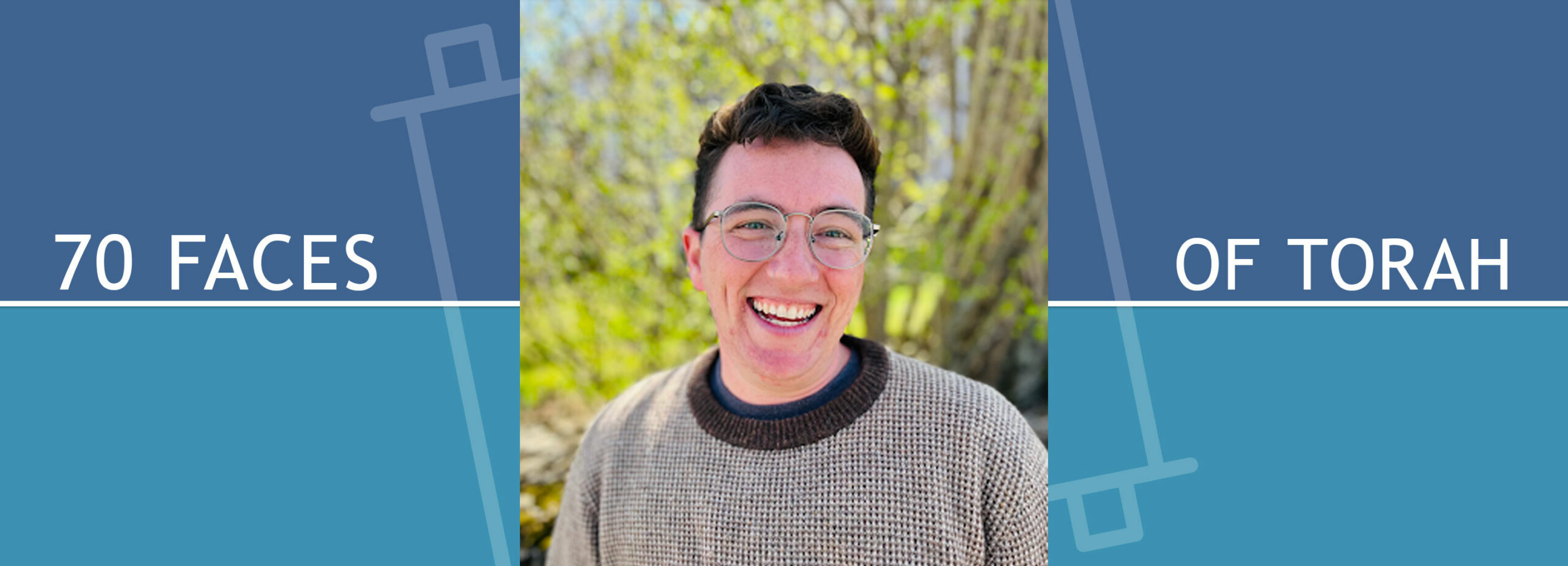Exodus This is My God

Parashat Beshalach Exodus 13:17-17:16
I’ve been carrying an image with me over the past few months, as I feel acutely aware of the impact this period of ongoing violence has on Israeli and Palestinian children. The image is of a small child’s hand pointing up, and saying, “This is my God, and I will praise Him – ze eili v’anveihu,” while waves rush around them, holding back, so that they may cross on dry land.
The image arises from a matrix of other texts, each bouncing around and informing the other, adding texture and color to the image.
The line, early in the Song of the Sea, comes to me through a Midrash I learned from my partner:
ר’ שילא אומר, כל הילדים שהשליכו המצריים ליאור לא מתו אלא היאור היה מפליט אותם למדבר מצרים והיה הקב”ה מביא סלע בפי כל אחד ואחד וסלע בצדו והסלע שהיה בפיו היה מניק אותם ומסיך אותם שמן… וכשבאו ישראל ראו הקב”ה והביאוהו וקלסוהו וקדשוהו שנ’ זה אלי ואנוהו.
Rabbi Shela said: All the children (of the Israelites) whom the Egyptians cast into the river did not die, for the river cast them up, and threw them into the desert of Egypt. The Holy Blessed One brought a rock to the mouth of each one, and a rock to the side of each one. The rock which was at his mouth was feeding him with honey and milk, and the rock which was at their side was anointing them with oil…When Israel came to the sea, they saw the Holy Blessed One, and they recognized, praised and sanctified God, as it is said, “This is my God, and I will praise Him.” (Ex. 15:2)
(Pirke D’Rabbi Eliezer, 42:9)
The Midrash came back into my life recently when I encountered this poem:
I wish children didn’t die.
I wish they would be temporarily elevated
to the skies until the war ends.
Then they would return home safe,
and when their parents would ask them,
where are you? They would say,
we were playing in the clouds.
Ghassan Kanafani (1936-1972)
These two texts, and this image of a child pointing, have run through me over the past few months as I’ve processed, held, cried, fought, yelled into the void. Whatever else I may be doing each day, at some point a line from Kanafani’s poem—“I wish children didn’t die”—will float through my brain and suddenly I’ll be surrounded by the sea, trying to follow the child’s gaze to see where the child is pointing. Each time, the Midrash’s words—“nursed and anointed”—draw me back to the same basic feeling, one that I believe exists throughout history and across even the most expansive divides: a deep, visceral need to provide safety and hope to children. To all children.
I’m often so caught up in the details of this war, the arguing over words and answers, the urgency of finding some seemingly impossible resolution, that this desire for safety and hope almost feels like too much to ask. It feels trite, and maybe even distracting. Who am I to write about hope? Of redemption?
And yet, these two texts, which both speak from a place of devastation and terror, bring me into contact with their pain alongside a touch of whimsy and a spark of gentleness. Kanafani’s poem lets me feel what it would be like for that child to land smoothly back amongst their loved ones, after it all. The Midrash permits me to imagine that even the most certain fate, the most awful decree, can be overcome by a loving river and a nurturing stone. The child pointing at their God as they cross the sea challenges me to recognize my own despair, while still allowing myself to dream of freedom, healing, and redemption.
Each year on Shabbat Shirah, when we read Parashat Beshalach, all those assembled will rise, as if standing alongside the newly redeemed Israelites as they sing and praise. We sing along with them to celebrate having somehow, miraculously, moved through an impassable situation towards an opportunity to begin to heal and to build something new.
There is a third text that often joins the chorus rattling in my brain, this one from an old Israeli song I learned in a Hebrew class in high school:
הבטחתם יונה
עלה של זית
הבטחתם שלום בבית
הבטחתם אביב ופריחות
הבטחתם לקיים הבטחות
הבטחתם יונה
You promised a dove,
an olive tree leaf.
You promised peace at home.
You promised spring and blossoms.
You promised to keep your promises.
You promised a dove.
The voices in this chorus of texts, the children of the poem and the song and the Midrash, are pained and disappointed; they were promised peace but instead grew up to war. They were promised a calm, blossoming future. It’s heart wrenching to reach back towards the time where we felt we could make these promises in good faith and to open our hearts to all the experiences that have left them unfulfilled. No one wants to raise children to fight for their own survival. And no one wants to make promises they can’t keep.
But this ritual of reenacting redemption, these stories we dare to tell of children rescued, nurtured, and set up to flourish in their next chapter, exist to challenge us to have the audacity to hope for, pray for, and even believe in redemption.
Rabbi Frankie Sandmel (they/them), a 2022 graduate of the Rabbinical School of Hebrew College, runs Base Bay where, together with their partner Elaina, they are building a vibrant, rooted, and resonant Jewish community out of their home in Oakland. In their free time, Frankie is a fellow with SVARA: A Traditionally Radical Yeshiva and they bake a lot of cookies.

